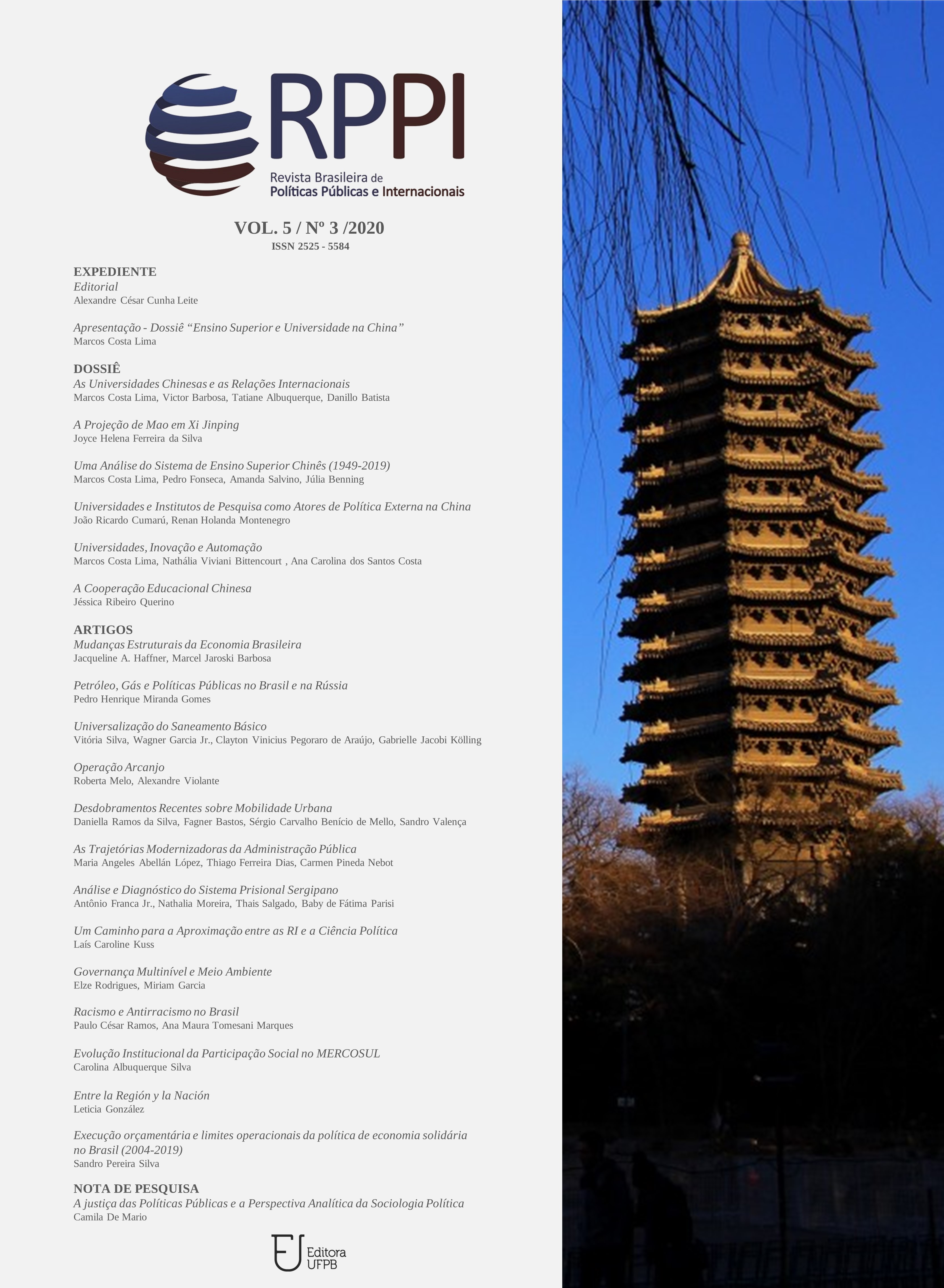Universalization of Basic Sanitation
the crisis of social rights and regulatory challenges in Brazil
DOI:
https://doi.org/10.22478/ufpb.2525-5584.2020v5n3.51806Keywords:
Sanitation, Regulation, Social RightsAbstract
This article analyzes some points related to the economic incentive mechanisms of the new regulatory framework of basic sanitation in Brazil, which was approved in the first half of 2019. Besides that, this work presents the real situation of millions of Brazilians who have their social rights mitigated by the failures of the current economic regulation, that do not meet basic demands of the population, and that endanger the constitutionally guaranteed social rights. The guiding question is: what are the main changes of the new regulatory framework of basic sanitation that promises greater efficiency in its universalization? To answer the guiding question, the research is based on data from IBGE, on the statistics from the Trata Brasil Institute, besides the economic and legal literature on aspects of regulation and social rights in Brazil and the regulatory frameworks of Basic Sanitation (Law 11.445/07 and PLC[1] 3261/19). The comparative method is used. Therefore, the research presents some statistical data that illustrate the difficult reality of thousands of Brazilians who still do not have access to treated water or sewage treatment in their homes, despite all the constitutional guarantees of Brazil.
[1] PLC (Projeto de Lei da Câmara): Bill of the Chamber of Deputies.
Downloads
Downloads
Published
Issue
Section
License
Autores que publicam nesta revista concordam com os seguintes termos:- Autores mantém os direitos autorais e concedem à revista o direito de primeira publicação, com o trabalho simultaneamente licenciado sob a Licença Creative Commons Attribution que permite o compartilhamento do trabalho com reconhecimento da autoria e publicação inicial nesta revista.
- Autores têm autorização para assumir contratos adicionais separadamente, para distribuição não-exclusiva da versão do trabalho publicada nesta revista (ex.: publicar em repositório institucional ou como capítulo de livro), com reconhecimento de autoria e publicação inicial nesta revista.
- Autores têm permissão e são estimulados a publicar e distribuir seu trabalho online (ex.: em repositórios institucionais ou na sua página pessoal) a qualquer ponto antes ou durante o processo editorial, já que isso pode gerar alterações produtivas, bem como aumentar o impacto e a citação do trabalho publicado (Veja O Efeito do Acesso Livre).




_.jpg)






.png)


.jpg)
_.png)
